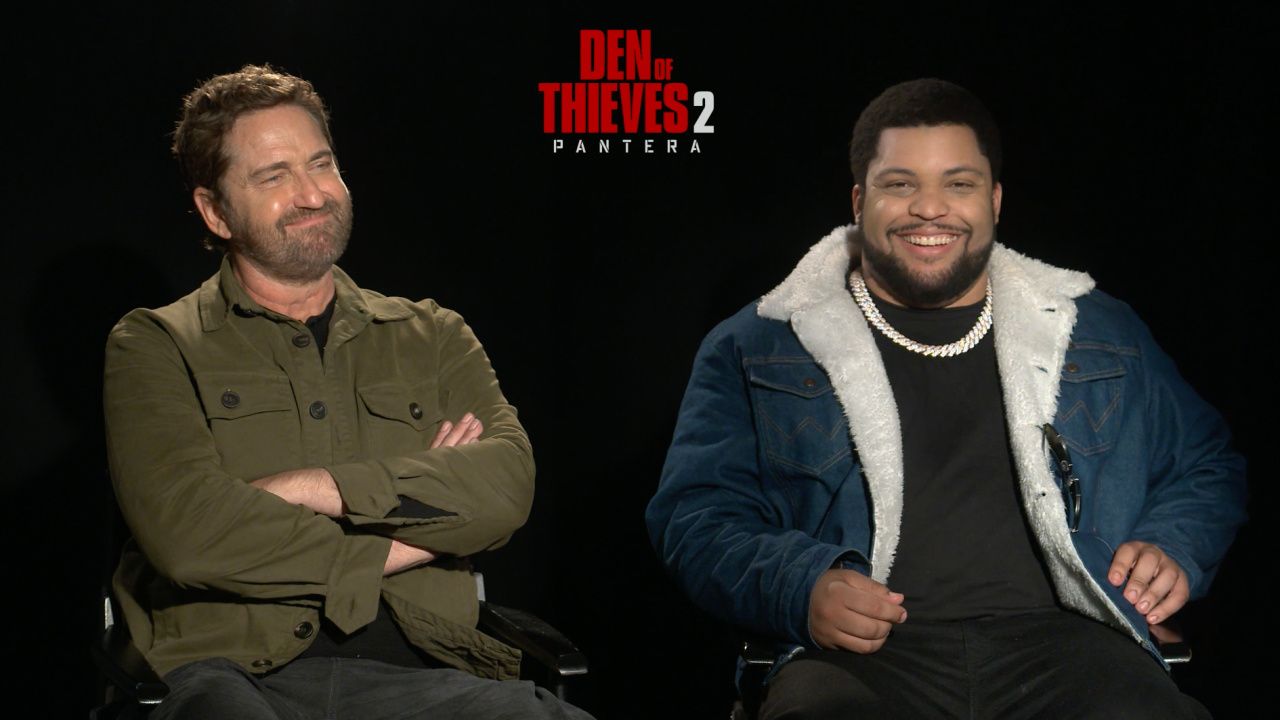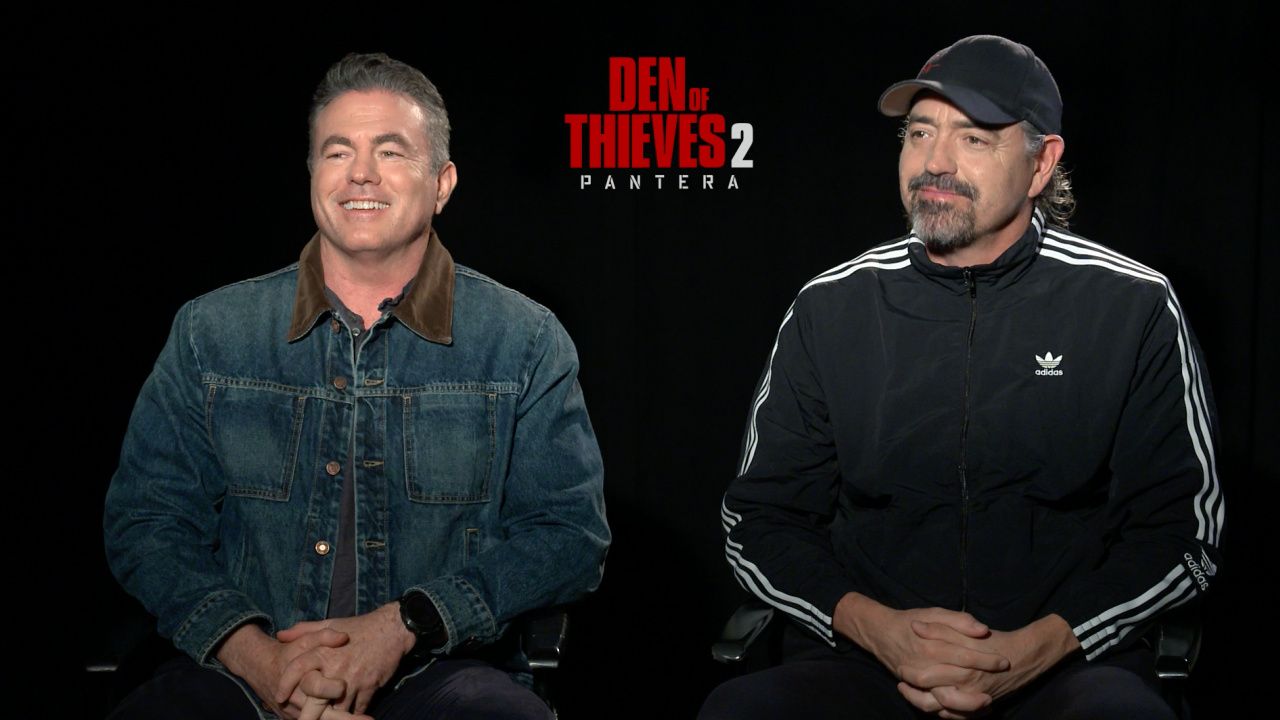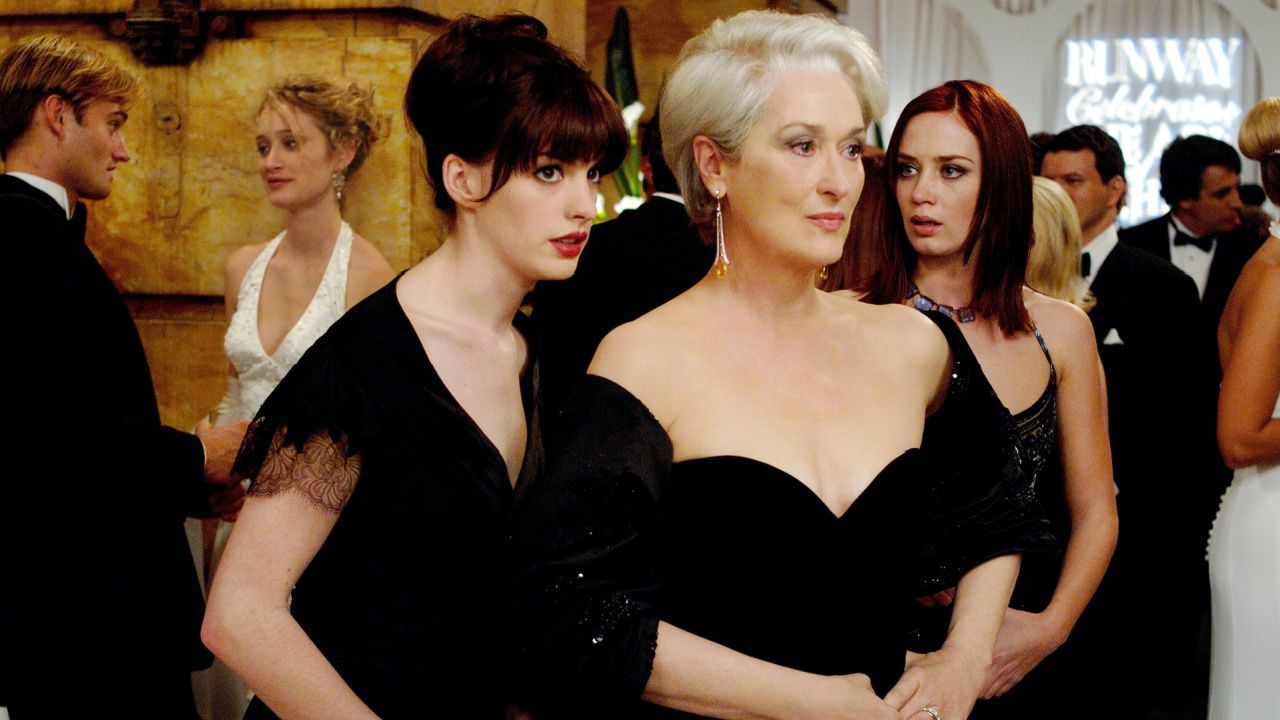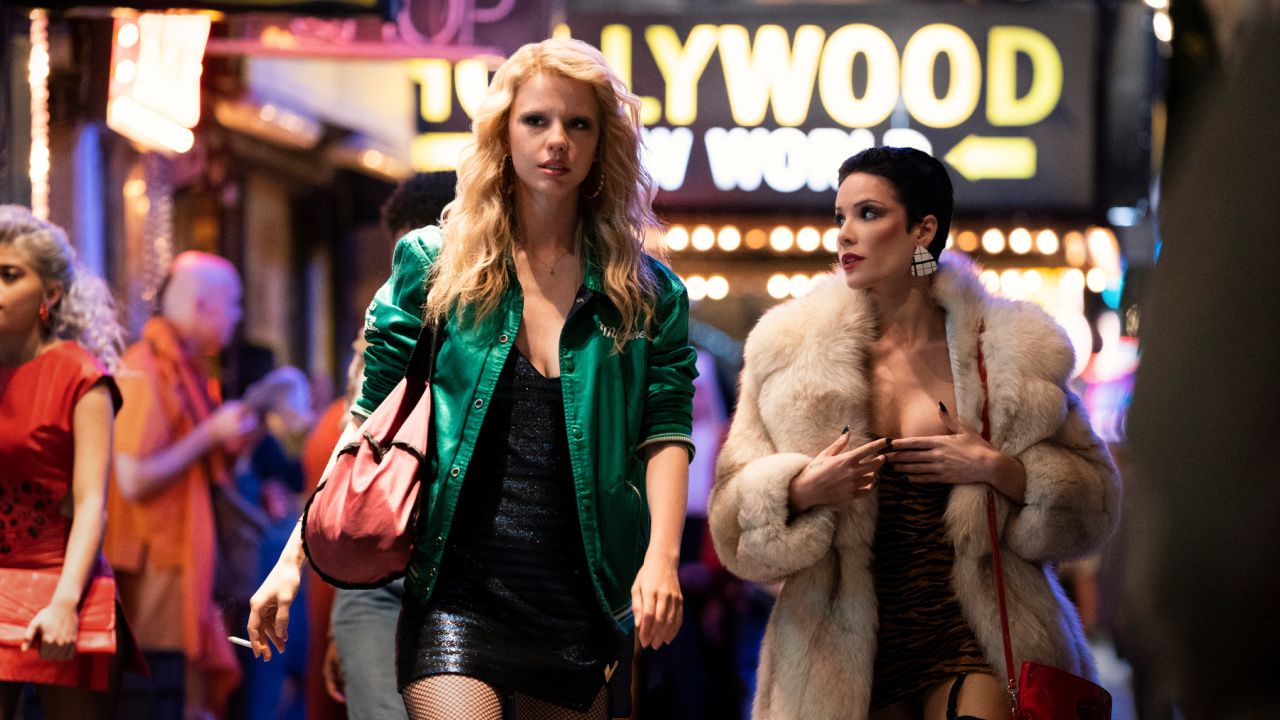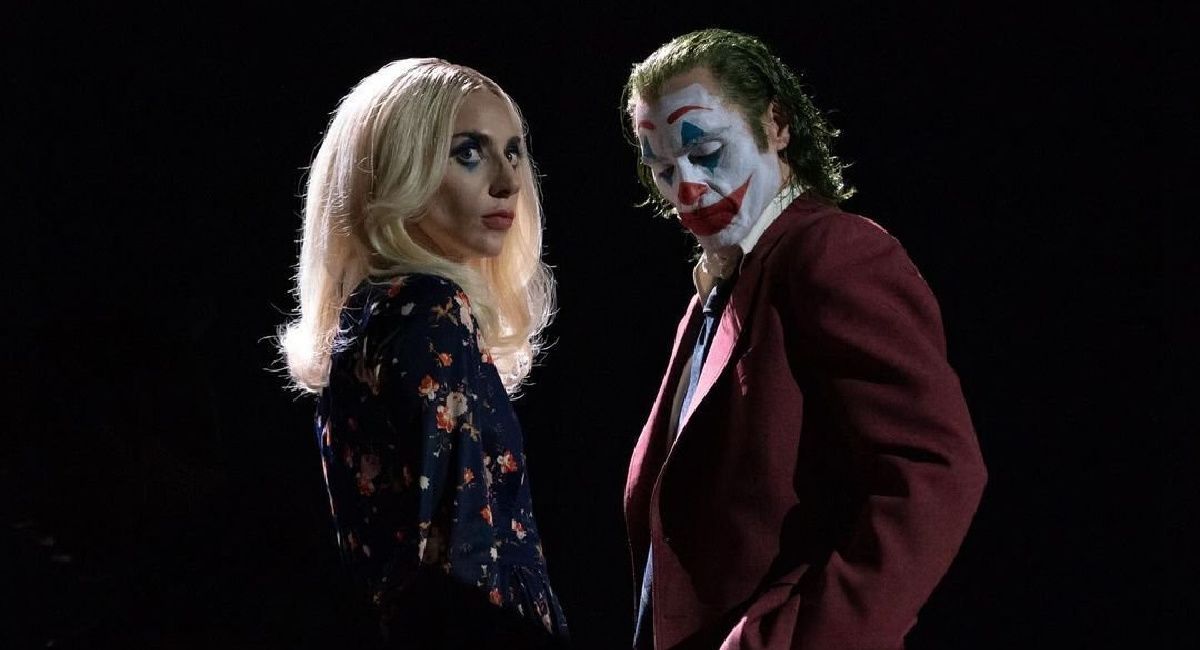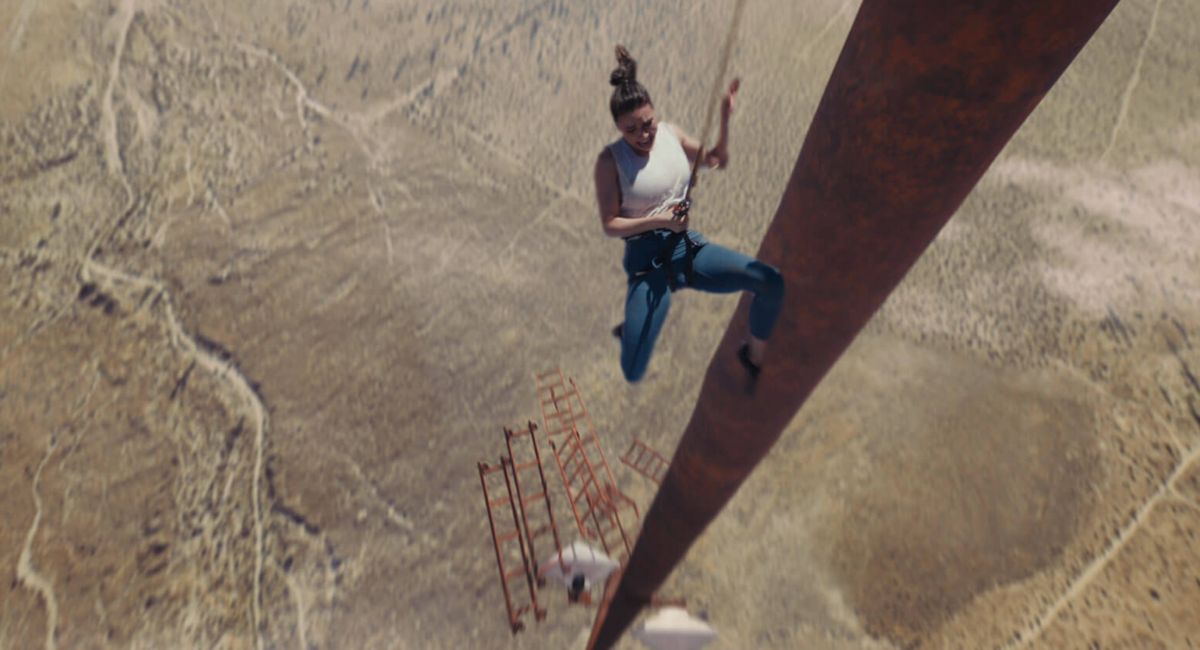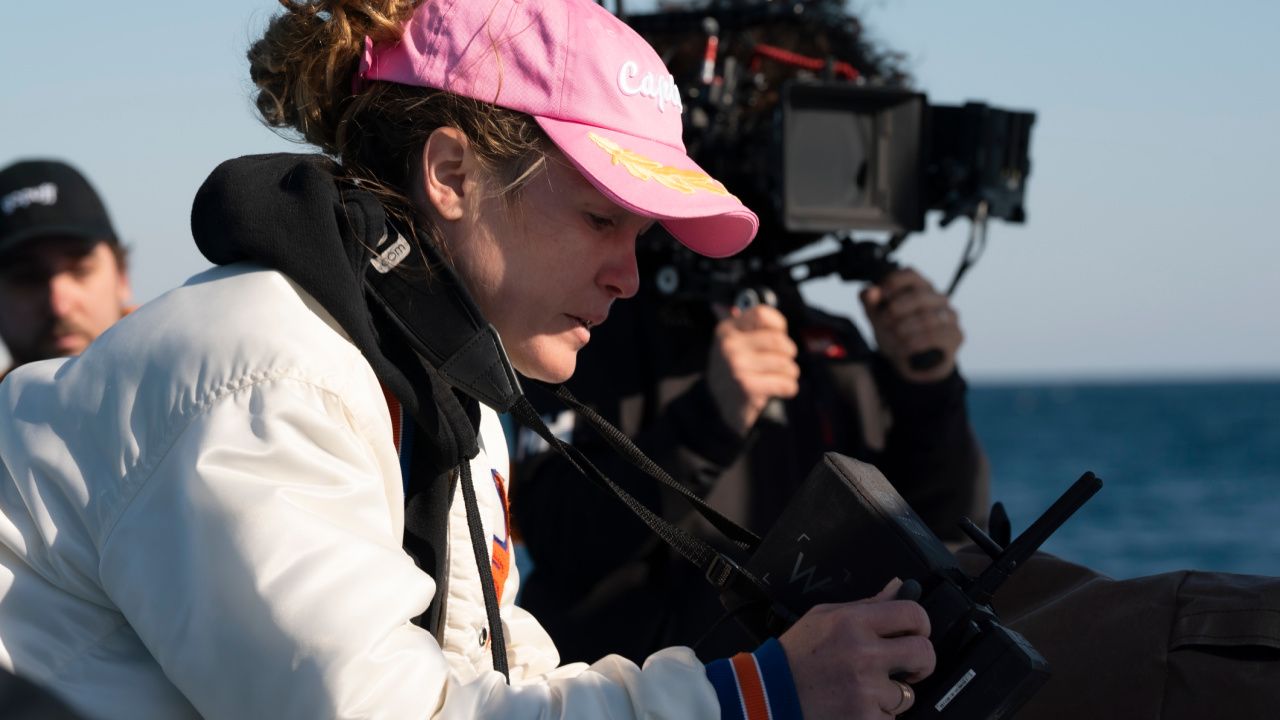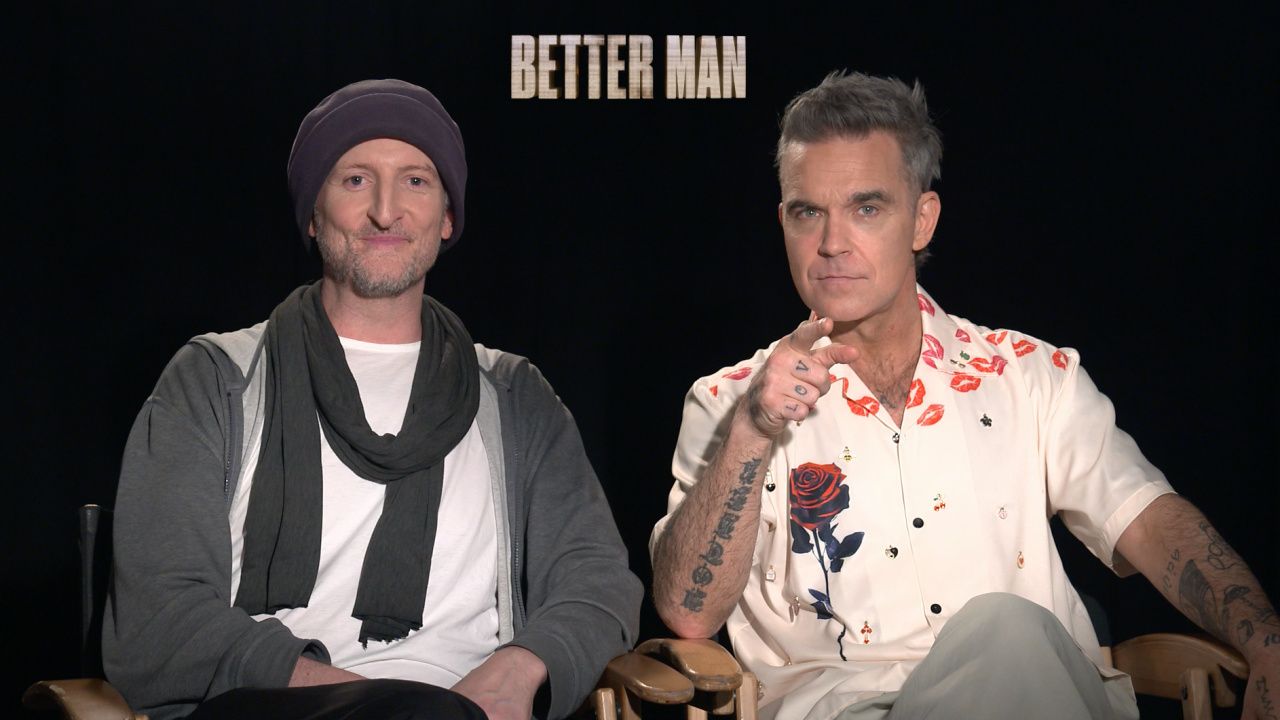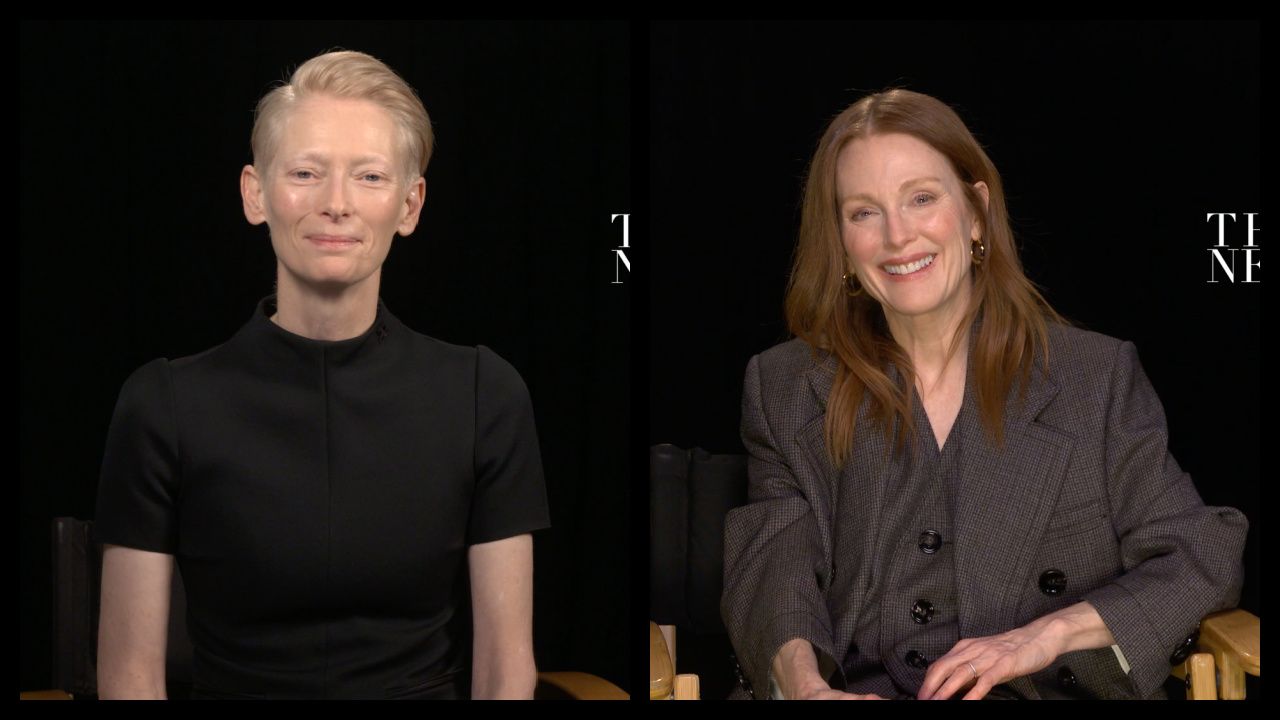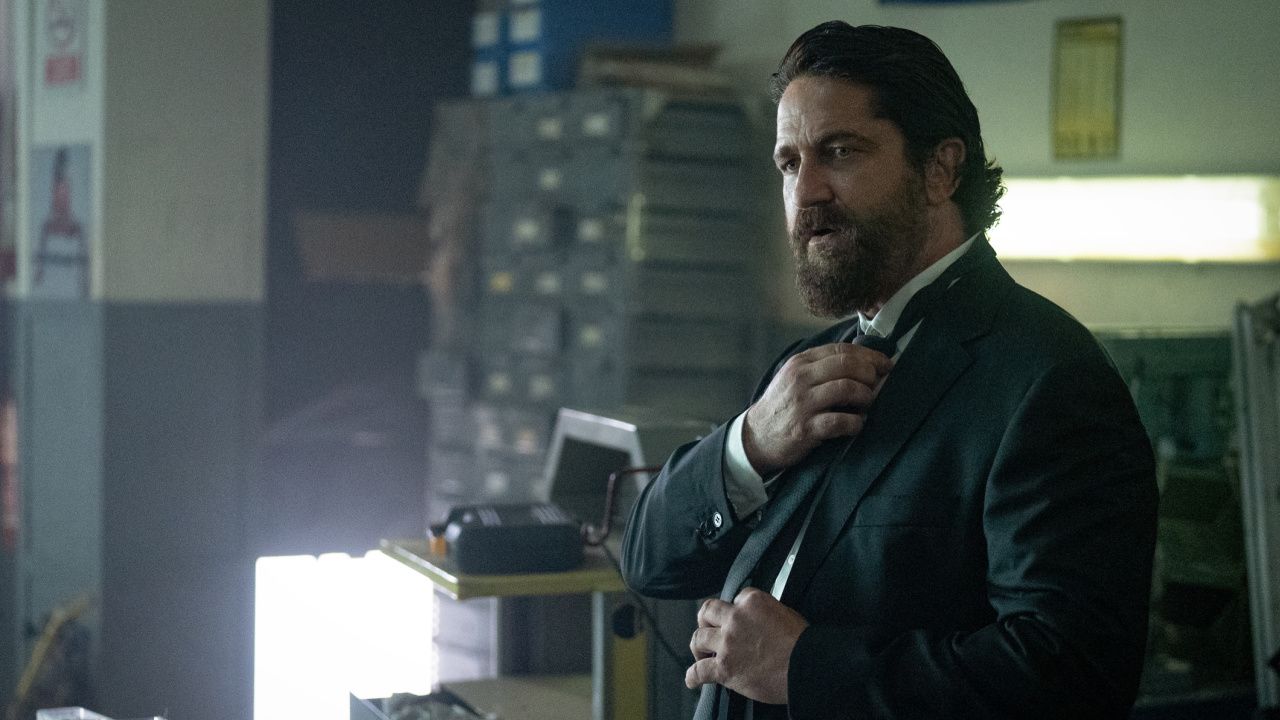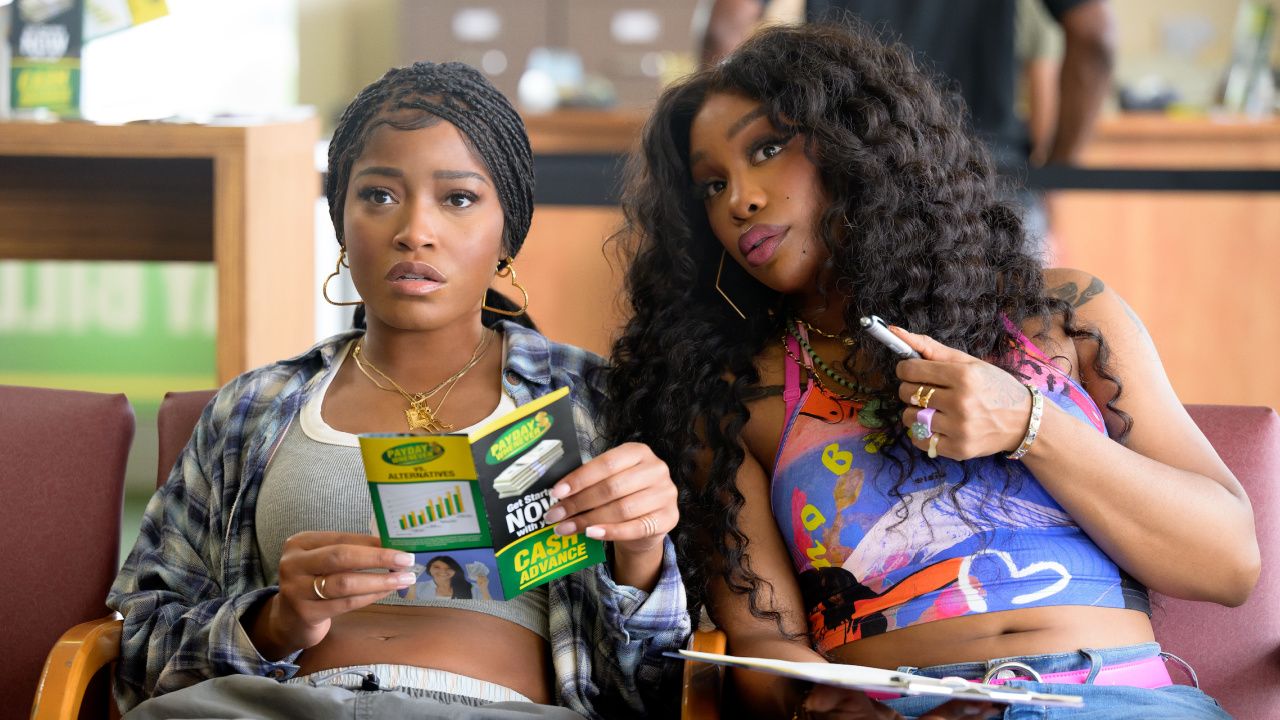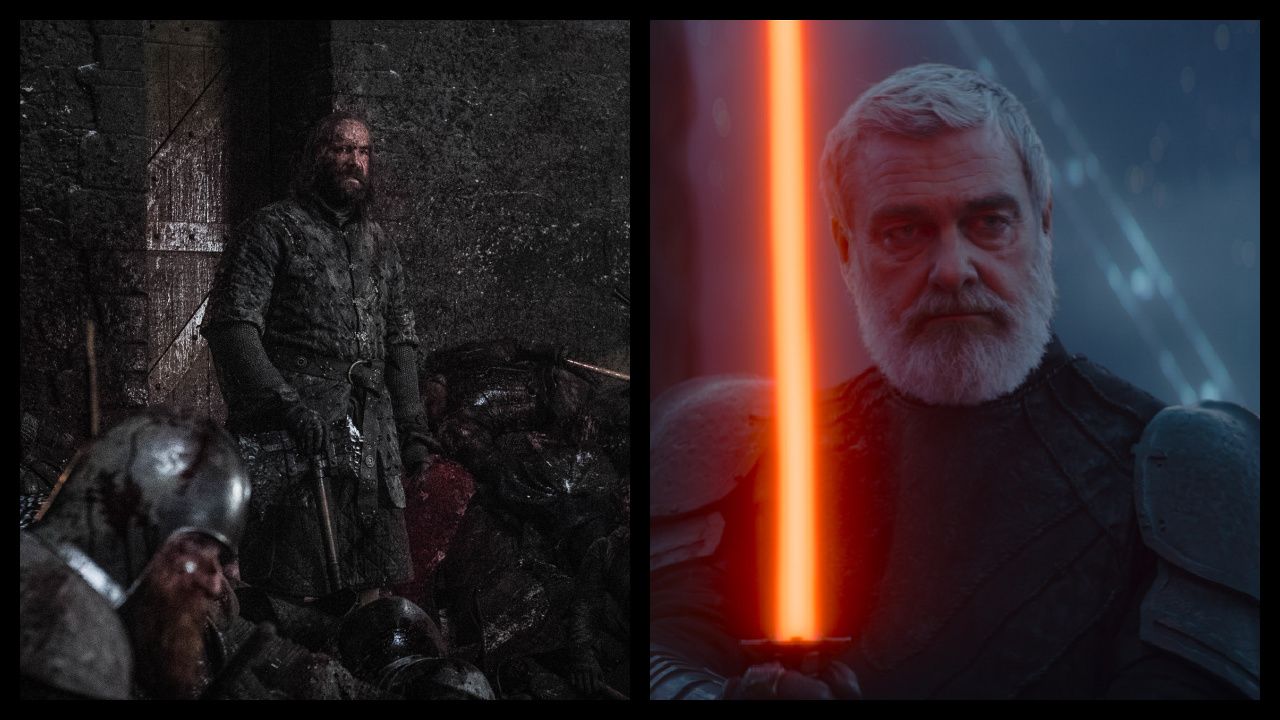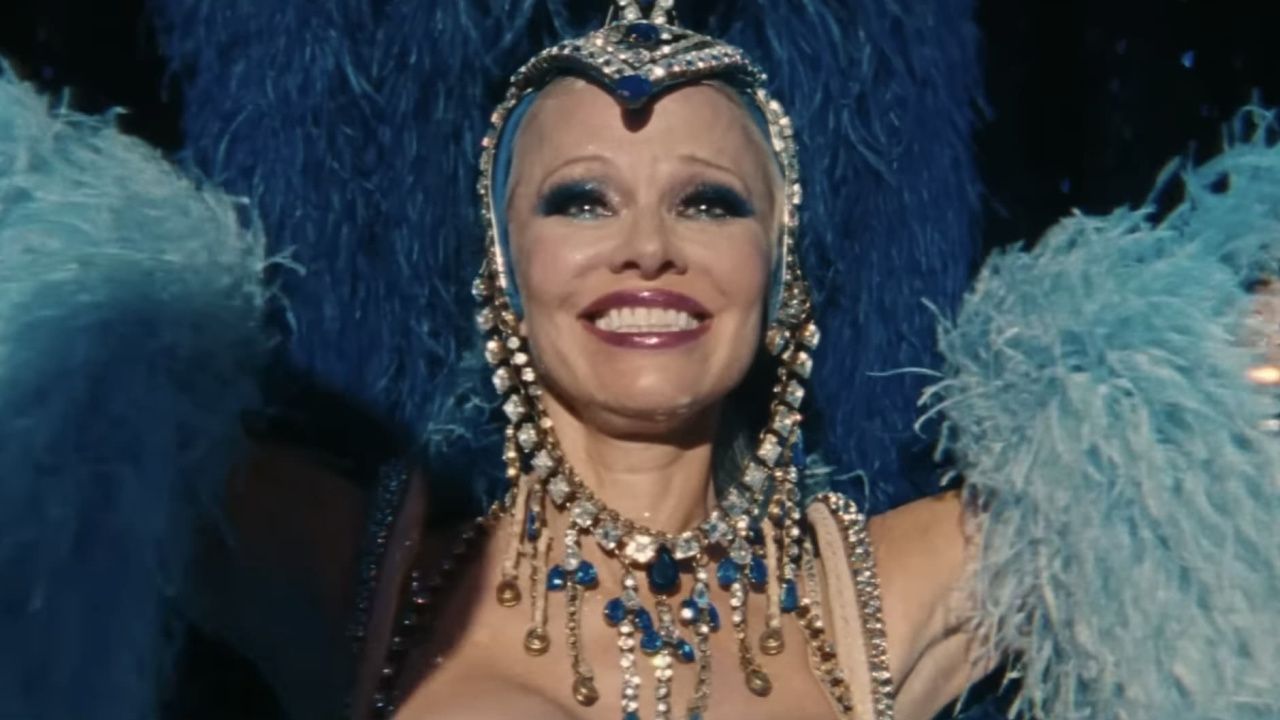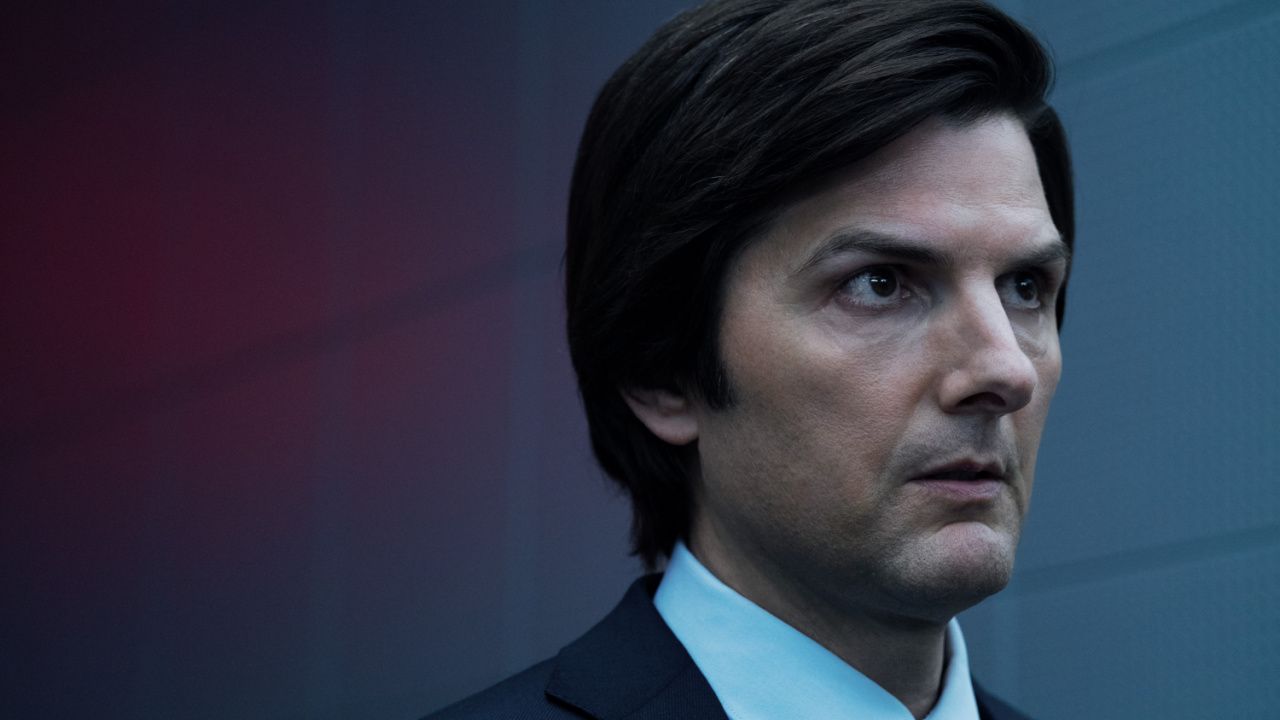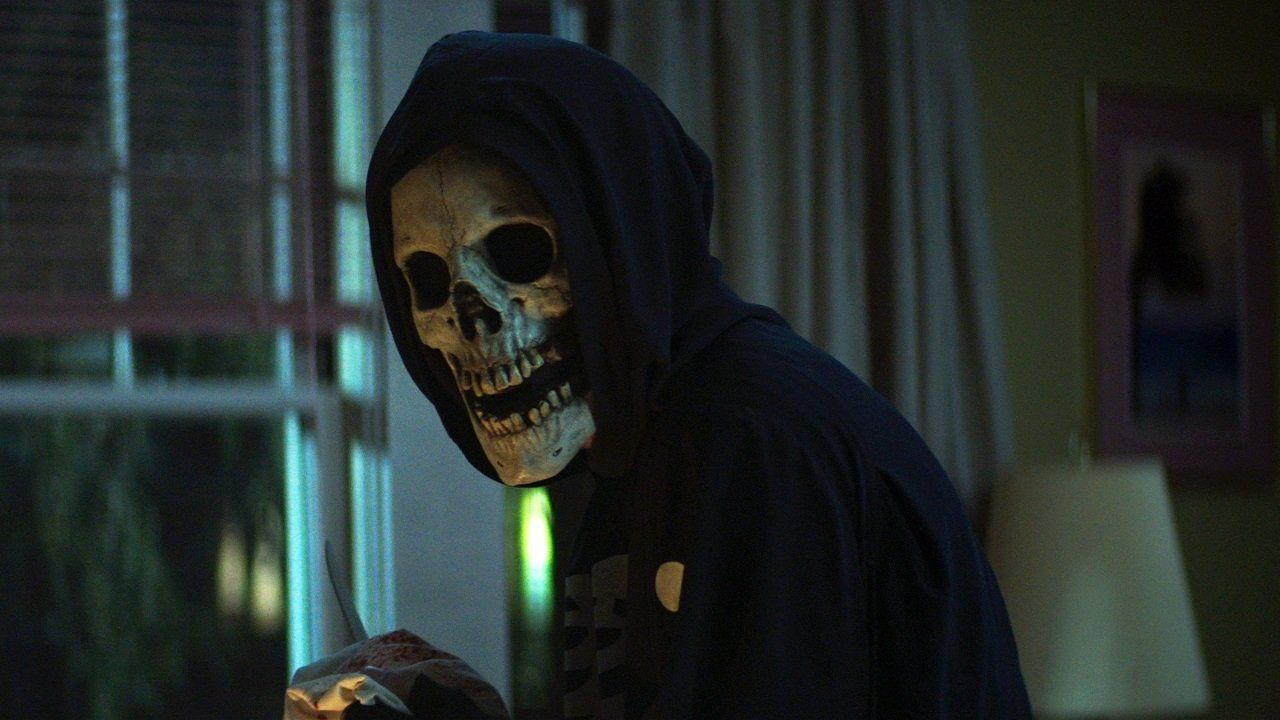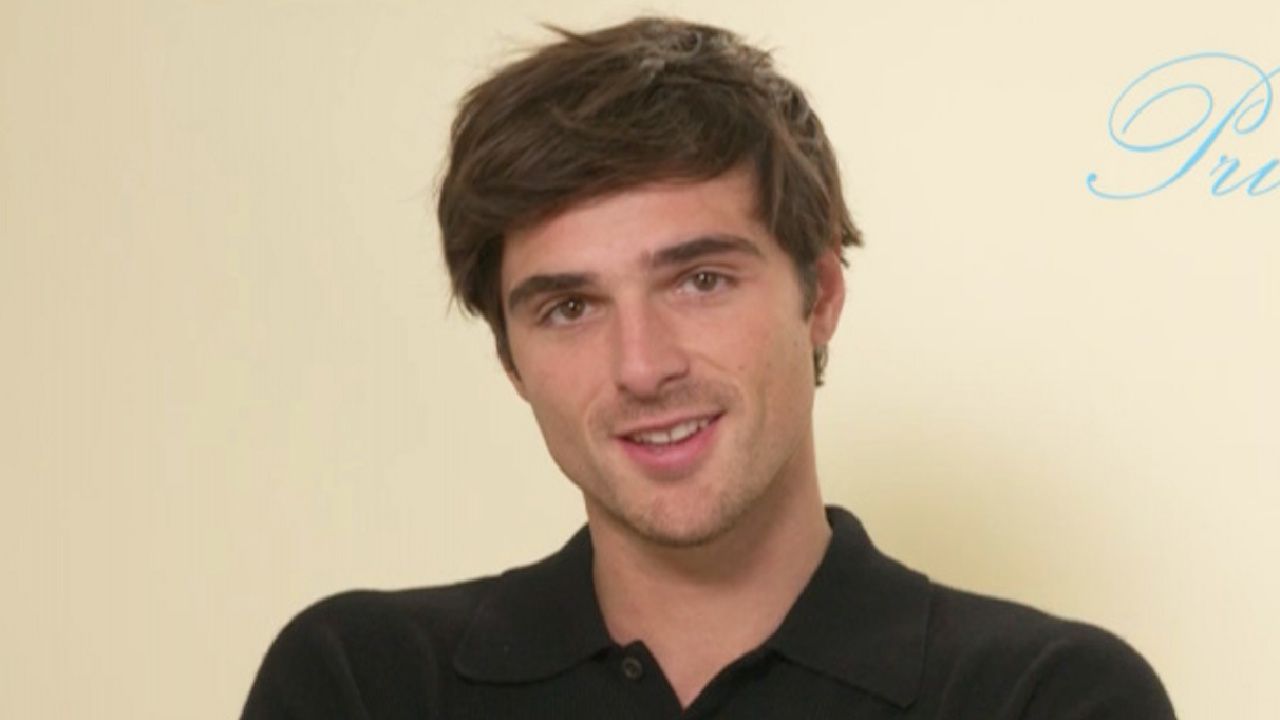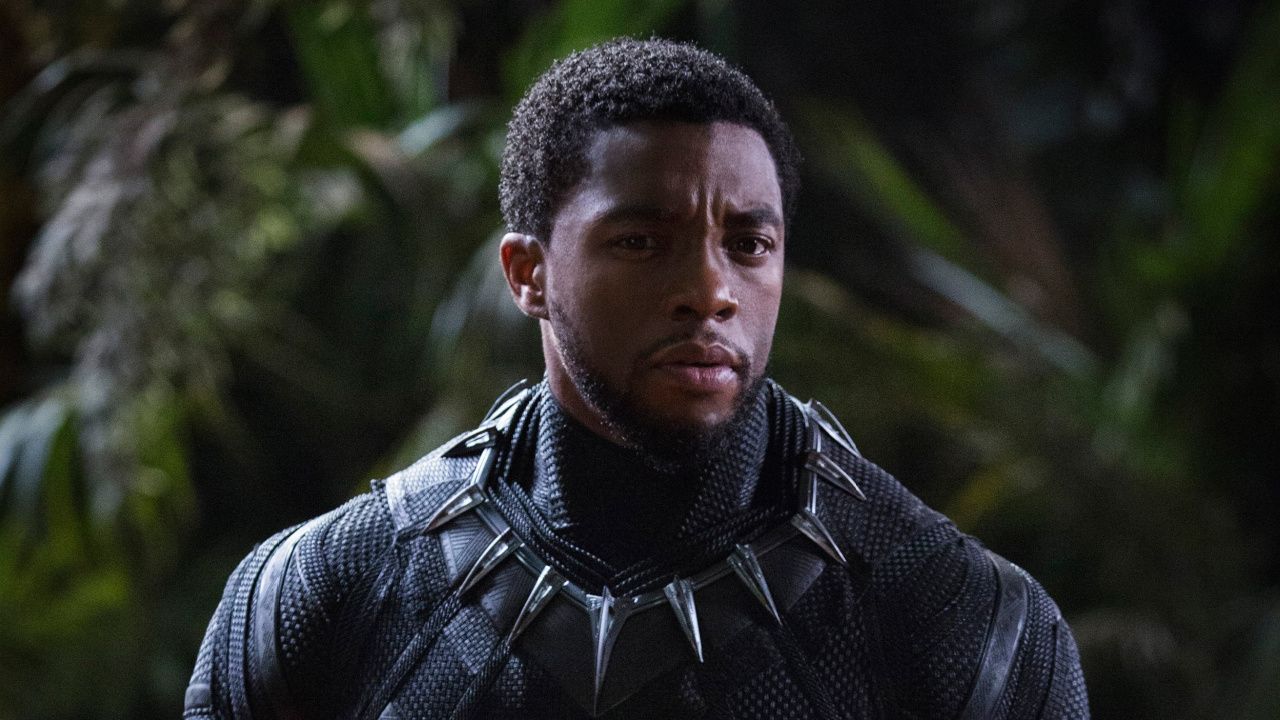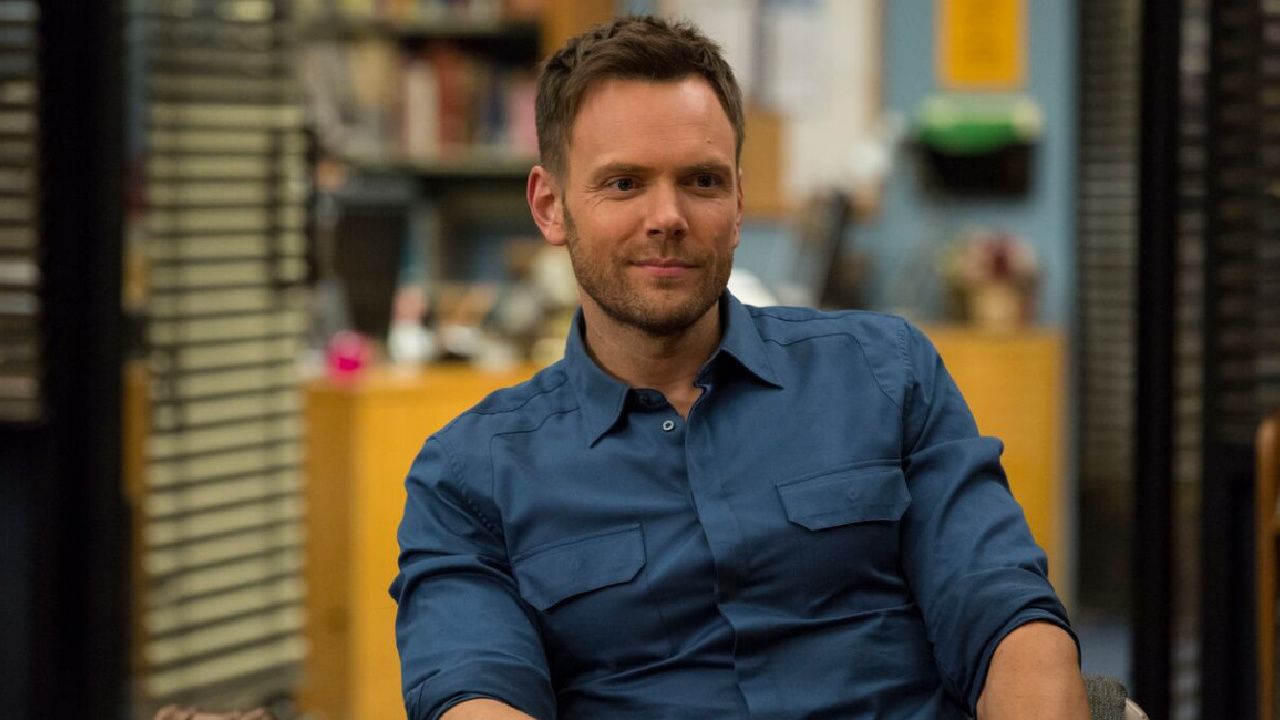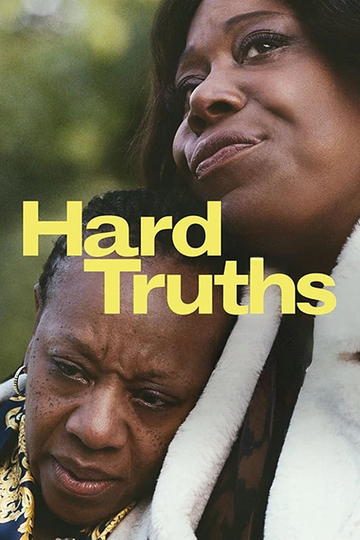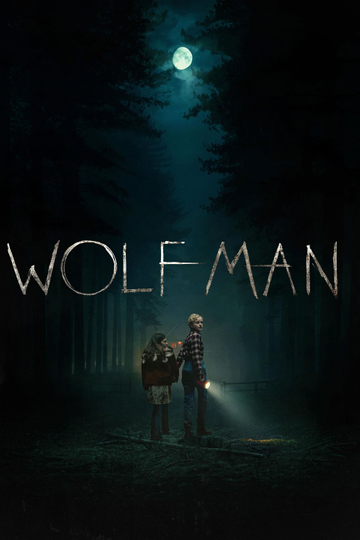Rosemarie DeWitt and Director Parker Finn Talk 'Smile 2' Digital Release
Moviefone speaks with Rosemarie DeWitt and director Parker Finn about 'Smile 2' digital release. "I wanted to challenge myself," Finn said about the sequel.
Available on digital beginning November 19th is the box office hit ‘Smile 2’, which is a sequel to 2022’s ‘Smile’ and was once again written and directed by Parker Finn. The movie stars Naomi Scott (‘Charlie’s Angels’), Rosemarie DeWitt (‘La La Land’), Ray Nicholson (’Out of the Blue’), and Kyle Gallner (‘American Sniper’).
Related Article: Movie Review: 'Smile 2'
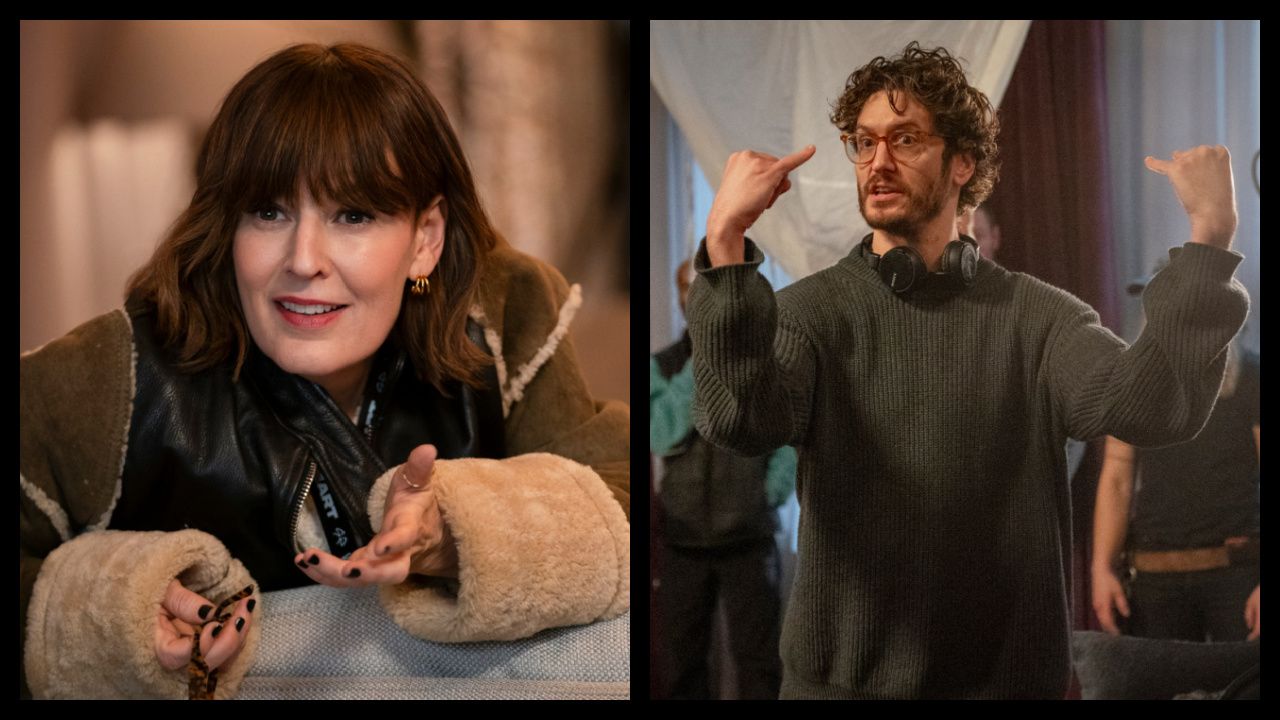
(Left) Rosemarie DeWitt in 'Smile 2'. Photo: Paramount Pictures. (Right) Director Parker Finn on the set of 'Smile 2'. Photo: Paramount Pictures.
Moviefone recently had the pleasure of speaking with Rosemarie DeWitt and director Parker Finn about their work on ‘Smile 2’, coming up with the idea for the sequel, Skye and Elizabeth’s relationship, working with Naomi Scott, creating the music and the dance sequences, shooting the mirror scene, perfecting the smile, collaborating on set, and Finn’s plans for a possible ‘Smile 3’.
You can read the full interview below or click on the video player above to watch our interviews.
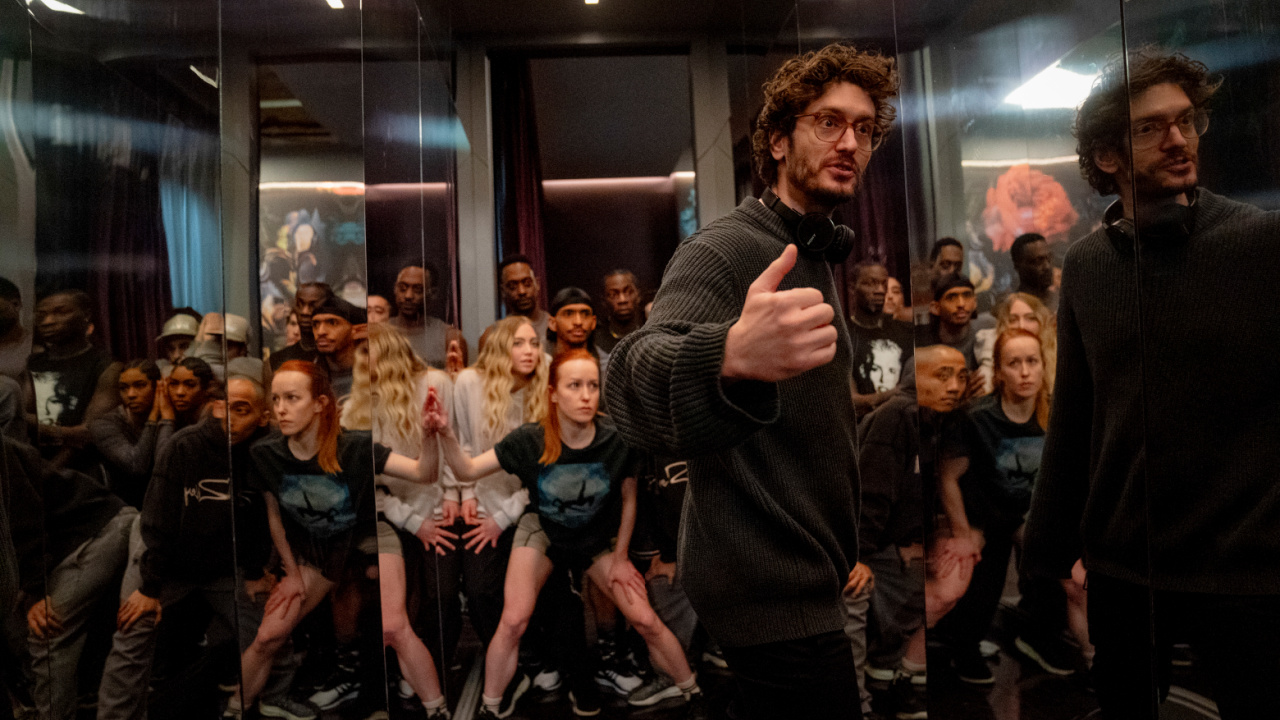
Director Parker Finn on the set of 'Smile 2'. Photo: Paramount Pictures.
Moviefone: To begin with, Parker, coming off the success of the first film, did you always have ideas for a sequel and how did you land on focusing on a pop star?
Parker Finn: Well, I made the first film to be able to stand on its own. I had no expectations or anticipations of a sequel at the time. But when those conversations began, I knew that if I was going to return to write and direct a sequel, that I needed to really take a swing and do something that could really hang a smile on a new main character who had some real thematic depth to explore and certain emotionality that felt sort of ripe and prime for a ‘Smile’ movie. So, some of those early ideas I threw away in the trash because I felt like they were too obvious to go with. I wanted to challenge myself to do something unexpected. I had been a big fan of pop music for a long time, but I was also fascinated by this. I think we're at this moment of peak relationship with fame, celebrity, fandoms, and some of these pop stars are elevated to godlike status, and I was very fascinated about the real human being behind that. These women who are expected to always be playing this persona, always be on, and always be performing. I wanted to go behind the scenes with a character who was one of the most famous people in the world, but also one of the loneliest people in the world. That felt like a great starting place for a ‘Smile’ movie.
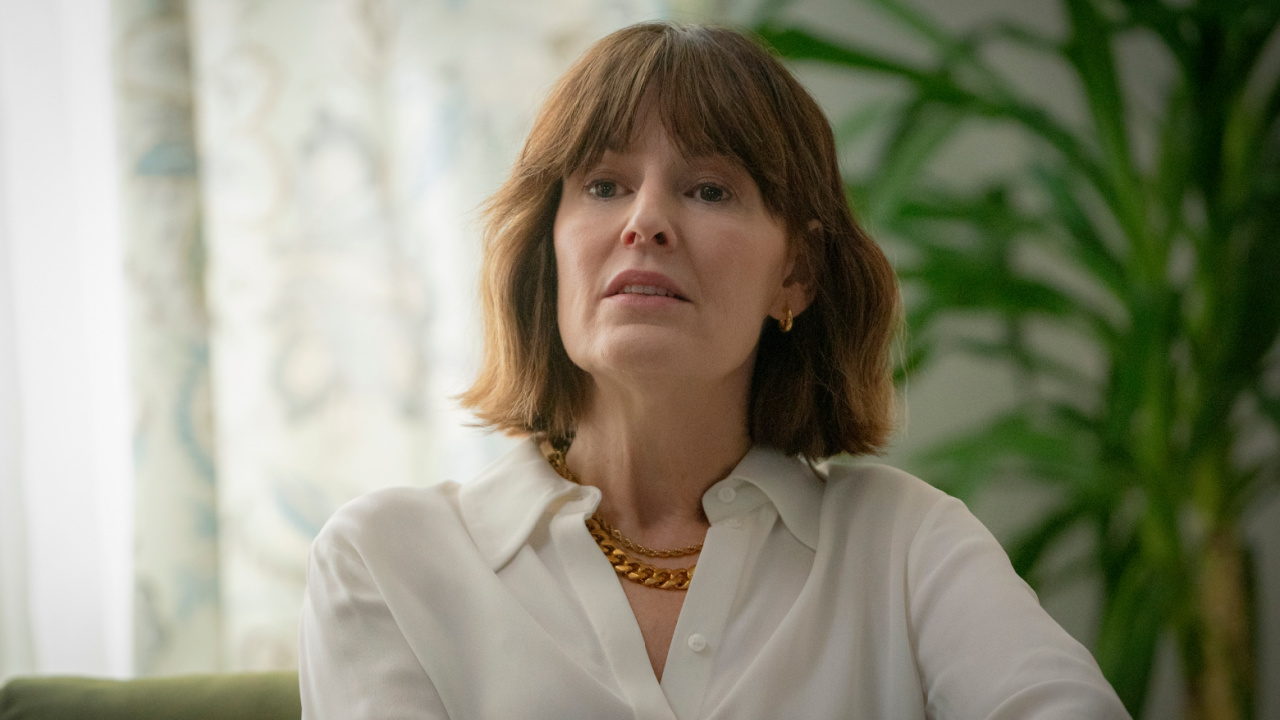
Rosemarie DeWitt in 'Smile 2'. Photo: Paramount Pictures.
MF: Rosemarie, what was your first reaction to the screenplay and the way it continues the mythology from the first film?
Rosemarie DeWitt: When I got the screenplay, I hadn't seen the first one. I try to protect myself from horror, not run right towards it, but I liked it. I just liked it on the page. I was like, "Oh, I'm really curious about it. I don't see a lot of things where we get to look at the behind the scenes." You watch the documentaries of a pop star and their life, and then you wonder, especially if they're young when they start, "What was that mom thinking?" You know what I mean? There are so many dangers lurking in this environment. So, I was curious about that. Not that it was a deep dive on it, but just to even get to explore the dynamic was interesting to me. Then, I like a challenge, so doing something that the audience had some hope and expectation for. I like the feeling of having pressure, being a pressure cooker and wanting to deliver something. Sometimes when you do, let's say a subtle indie, you're like, "Will anyone see it?" But when you do a big movie that the audience is waiting for the next one, it's fun to try to get it right.
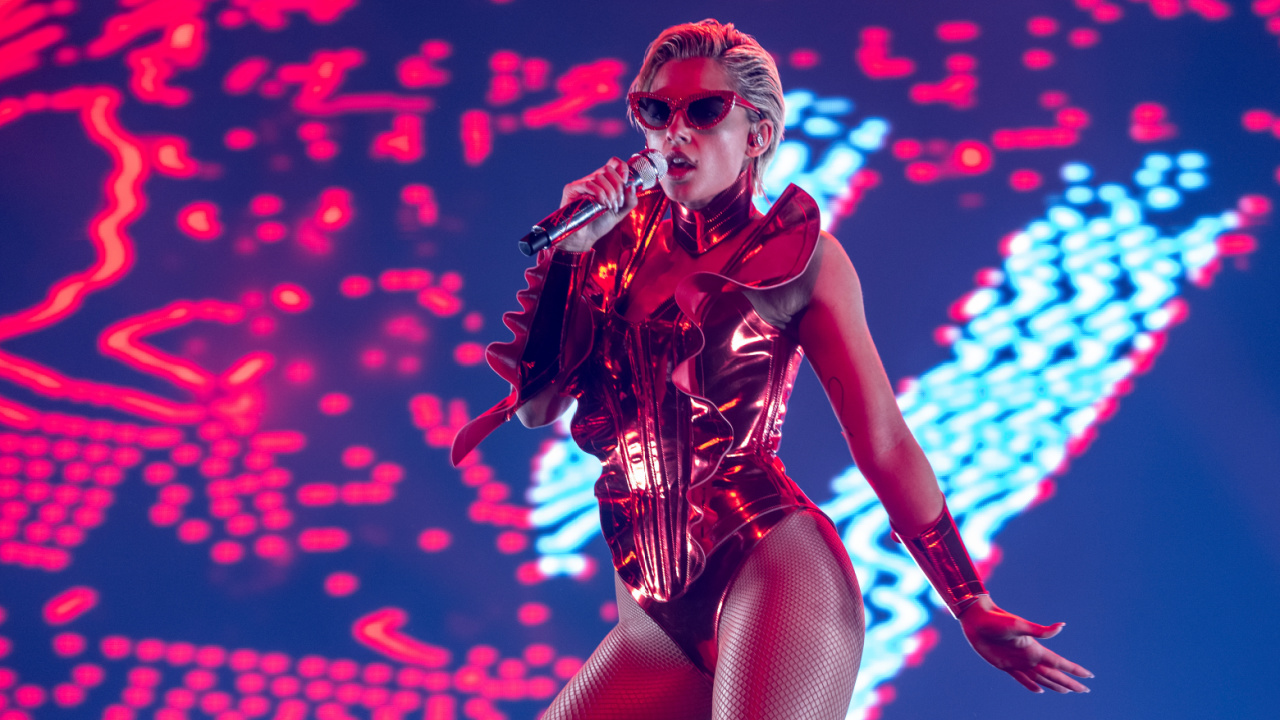
Naomi Scott in 'Smile 2'. Photo: Paramount Pictures.
MF: Parker, can you talk about casting Naomi Scott as Skye, and was there a particular pop star that inspired the character?
PF: Definitely. I mean, when I wrote the character, what I was envisioning in my head was certainly, at least for the persona, the onstage, the musical performance, the costumes, I was looking at everyone from Lady Gaga to Rihanna. I really loved looking at earlier in each of their careers when they were maybe around their mid-20s. Also, women like FKA Twigs and Olivia Rodrigo, Sia, and Tate McRae. There was a lot of women that we were looking at. I got my hands on every documentary, interview and essay that I could. Certainly, there were some inspirations, from Britney Spears to Whitney Houston. There was a lot of stories, but I wanted to make sure that Skye felt like a whole unique creation as well. Naomi was a perfect storm for this character. She instantly had this gravitas where I believe her when she puts on the skin of this pop star, but then also can go to incredibly raw and human dramatic places. She also really understands how to play the moments that are funny in the film, just as well as the moments that are terrifying. She sings and she dances. She sings all the original songs. She performs the choreography. Naomi just really had all the X factor for this role, and it was a dream getting to work with her.
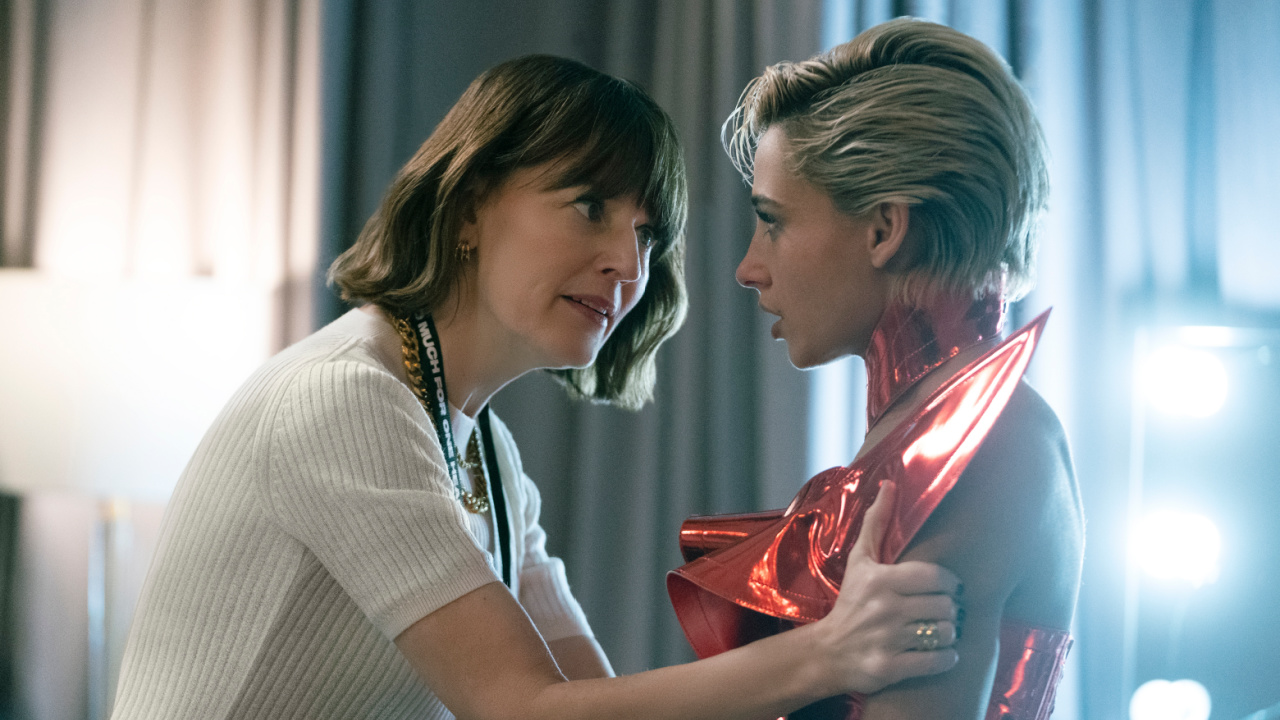
(L to R) Rosemarie DeWitt and Naomi Scott in 'Smile 2'. Photo: Paramount Pictures.
MF: Rosemarie, can you talk about the “momager” relationship Elizabeth has with Skye and did you create a backstory for the characters and their mother and daughter dynamic?
RD: It's funny because the very first scene we shot together, we met a day or two before just to get to know each other. I remember being like, "Oh, shoot, I really like her." You know what I mean? I knew we were starting with the very last scene in their relationship, which was the big fight, and it was kind of great that I could just project onto her all these kinds of horrible things that I had to sacrifice because in a lot of genre pieces those are a mislead. You're not often playing the truth of the situation. You're playing the truth of what the audience needs to believe in that moment, and then they must believe that I killed myself or that she killed me. You must go to the darkest spot. So, it was kind of great that we weren't madly in love with each other on day one, because the more I worked with her, she's like a ray of sunshine. She's playing this very fraught, narcissistic drug-addicted person with this really tortured past, but she's really the opposite. You know what I mean? She's just so happy and kind. So, it was almost the opposite. I worked a lot more with my imagination building. Also in horror, I think we get to work with a little bit of our shadows. Maybe I got to look at a little bit of the dark underbelly of fame, and how much is enough? What is she pushing for? Why am I doing press right now? What am I trying to get out of it? You get to ask yourself some good questions.
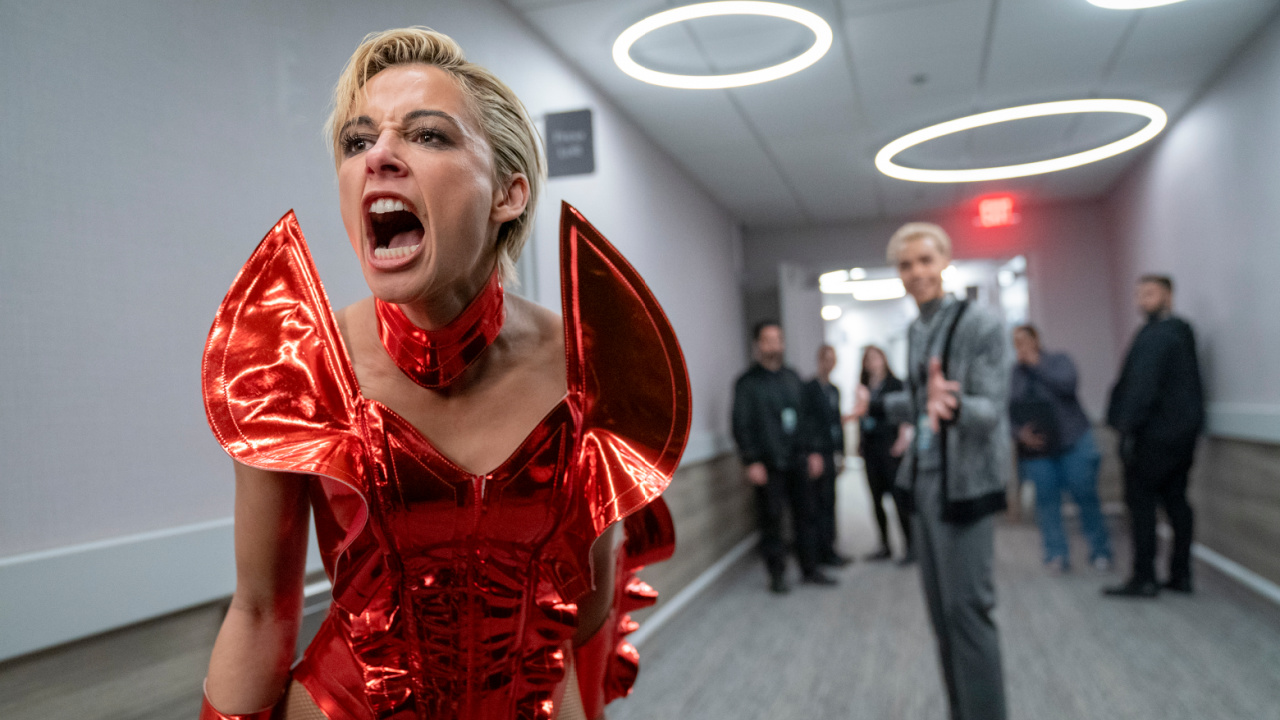
Naomi Scott in 'Smile 2'. Photo: Paramount Pictures.
MF: Rosemarie, what was it like working with Naomi on that relationship?
RD: It's interesting. I've played a lot of moms. I've played this relationship quite a bit. But for me, with her, it was less about seeing her as my daughter. It's probably appropriate for the role and more about seeing her as this pop star machine, because it really did kind of take that commitment on the actor's part to be dancing, to be singing, to be doing the emotion, to be screaming over and over. It was exhausting. I felt really, weirdly, I was the opposite in real life than my character where I would kind of be like, "Didn't we get it? Can we move on? This poor sweetheart needs to go rest. Let's let her go home and shake it off for tomorrow." But in the story, I had to keep driving her more like, "This is what they want from you. You can't give up." It's really nuts to think that we push people that hard for the fans.
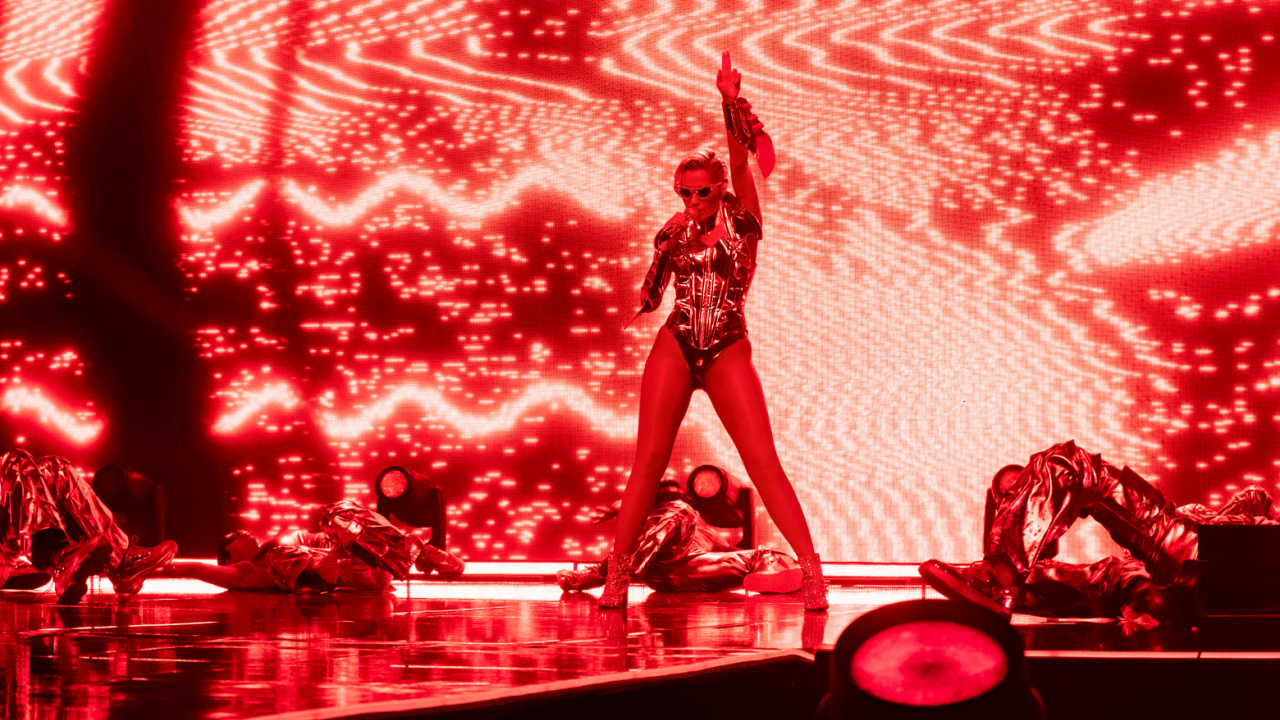
Naomi Scott in 'Smile 2'. Photo: Paramount Pictures.
MF: Parker, can you talk about creating Skye’s music and choreographing the dance sequences?
PF: I knew that when I was approaching this, I didn't want the pop star element to just feel tacked on or something that was happening in the periphery or just like a hat that the movie was wearing. I wanted to make sure that this was really part and parcel of the character. This is her story. This is her life. This is her world. So, for me, it was incredibly important to build credibility around Skye Riley as this pop star. I wanted to sort of blur the lines between fiction and reality and make up a pop star that feels real, like she could exist in our world, and hopefully when people leave the movie theater, someone they wish existed in our world. So, we set about creating the five original songs for the film. We worked with a couple of music producers. One was Alexis Idarose Kesselman, who wrote and produced the music for four of the songs in the film. Then, we worked with these music producers that go by Take a Daytrip who did one of the other songs. But it was exciting to get to try to build this from scratch. Then, of course, my costume designer, Alexis Forte, we were looking at what was happening in pop right now with costumes. My choreographer, Celia Rowlson-Hall, was somebody who had worked on everything from avant-garde art pieces to Old Navy commercials. It was about finding something that felt pop with a capital P, but also had this sense of artistic movement to it that we knew we were going to also bring into the film in a scary way as well. Such a wonderful collaboration with a lot of people to bring this pop star to life.
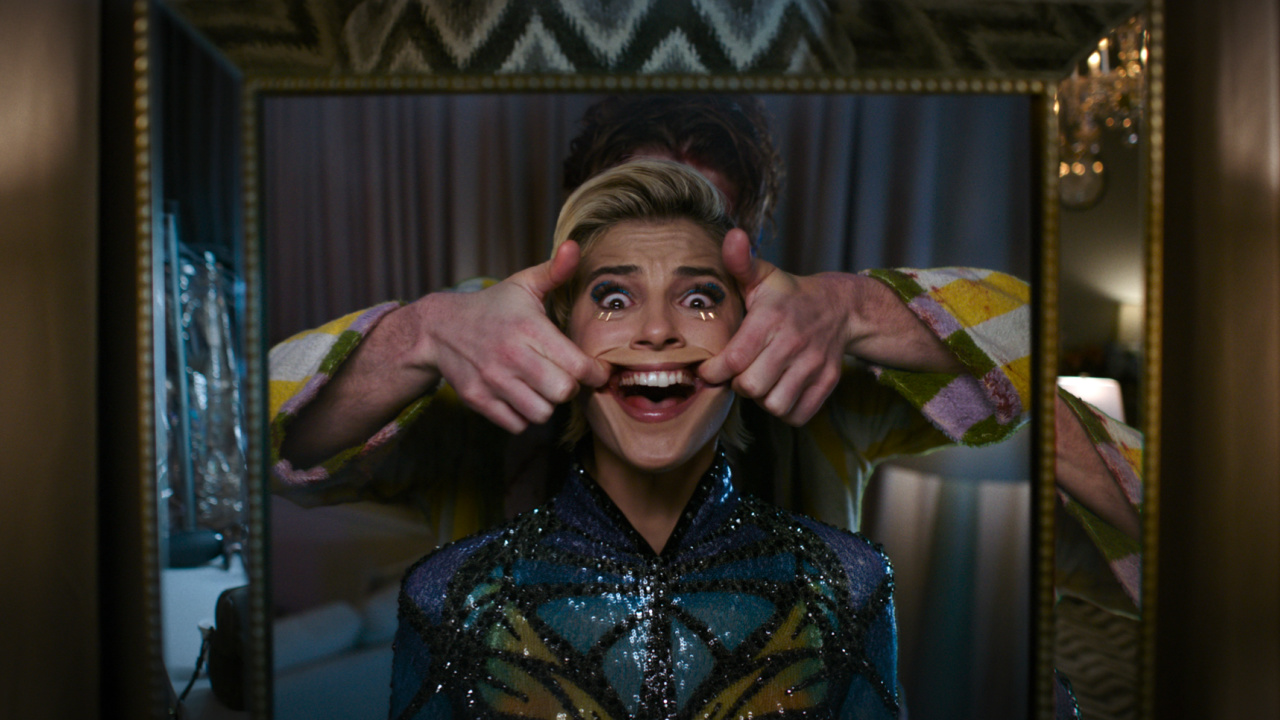
Naomi Scott in 'Smile 2'. Photo: Paramount Pictures.
MF: Rosemarie, what was it like for you to shoot the mirror sequence?
RD: Yeah, it's funny, those moments, because the stunt coordinators, everybody's so good at their job. That stuff was easy because they just tell you to come over and hit it here with this part of your hand and it's going to be sugar glass, so you're going to grab a piece. What was harder was, I think just sort of the psychological, having an eye taped shut all day and just feeling that claustrophobia because you had to keep the prosthetic on over it. Then just being drenched in blood and the way people react to you. Having people for a couple of days just keep recoiling from you, made me by day two say, "I'm just going to lay on the floor and wait until you're ready for me, because I'm freaking everybody out. There's cold, wet, fake blood inside my bra. I think I'm just going to sit still." A lot of this stuff's technical because Parker knows what it takes to scare the audience. So, a stab needs to be in a certain place at a certain angle. The smile must be at a certain tilt. So weirdly, that was almost like playing notes, but the rest of it, you're like, "Ooh, everybody's scared of me."
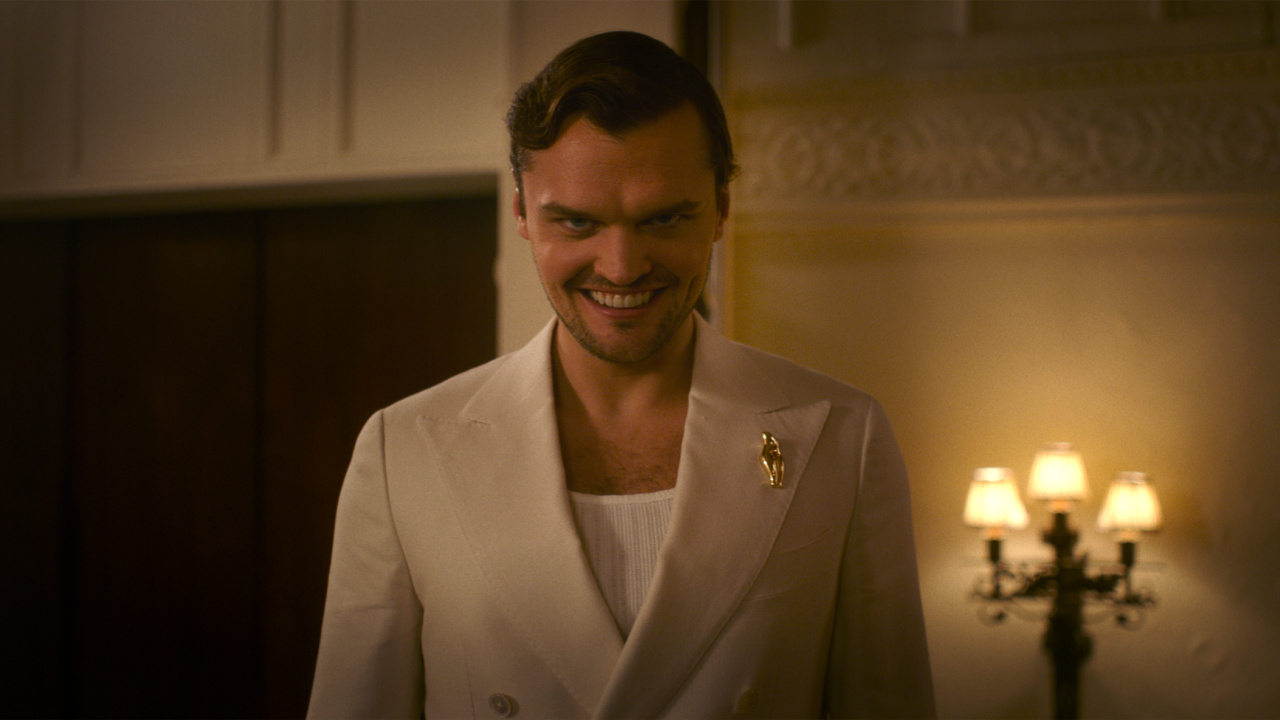
Ray Nicholson in 'Smile 2'. Photo: Paramount Pictures.
MF: Parker, can you expand on what Rosemarie just said? Did you have a specific way that you wanted the actors to smile?
PF: Well, I always cast towards the performance and then I can coach them towards the smile rather than the other way around. But there's a few tricks that we use that involves obviously the too wide smile itself. The trick is all about the eyes and the dead look in the eyes. We do a bit of a Kubrick stare thing where there's a bit of a tilt of the head so that you're looking from underneath the brow. When you combine that with the tools of filmmaking, how we frame it, the sound design, everything, it creates an unsettling effect.
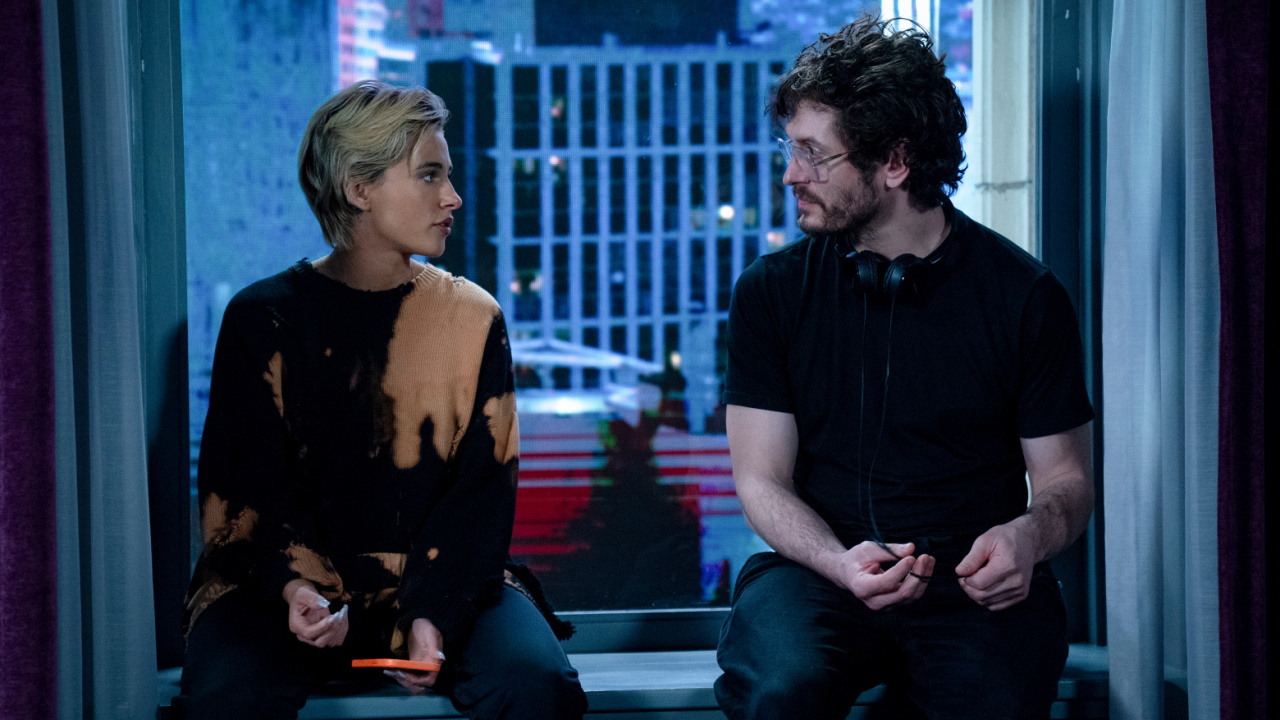
Naomi Scott and Director Parker Finn on the set of 'Smile 2'. Photo: Paramount Pictures.
MF: Rosemarie, what was your experience like working with Parker as a director on set?
RD: It's interesting because I do love to collaborate, and then sometimes when I'm not in my element, I like to be directed. Because horror is not my genre, I was just really deferring to him. What makes this scarier? What does this scene need? If anything, the thing that was hard, and they did scale it back a little bit was when you play on so many screens around the world, because it is a franchise, you explain things to the audience a lot more because they're watching it in many different languages. The only thing I kept saying to him was, "Do I really have to say we have to go to the label party again?" You know what I mean? I had to keep repeating things. I'm like, "I feel like I've said it. Didn't I say it?" But I think because it's horror, you must keep reorienting the audience to the story because their nervous system pulls them out of the story and then you bring them back in. So, you always must keep reminding them. So that for me was a challenge. I like it to all feel real.
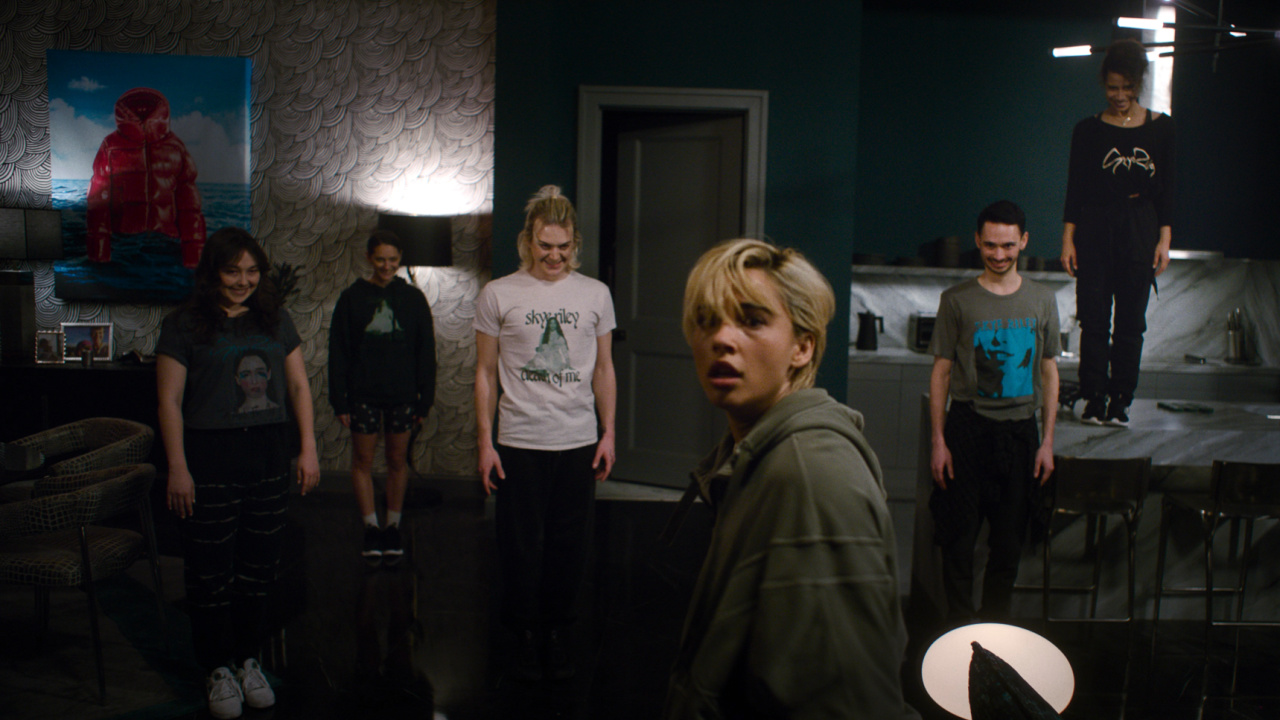
Naomi Scott in 'Smile 2'. Photo: Paramount Pictures.
MF: Finally, Parker, the ending of the film might lead audiences to think that ‘Smile 3’ will feature an Entity pandemic. Can you talk about your plans for another film?
PF: Well, you're asking the right questions. I was hoping those questions would be asked at the very end of the film. I felt that there was a very interesting meta commentary about celebrity platforms and celebrity influence, this idea of how we live in this time now where individuals can have such an effect on so many people instantaneously. So, there was something fun to play with there with ‘Smile’. Of course, if ‘Smile’ were to continue, I think there's a lot of interesting directions to go with. I'd want to make sure, again, that the way in feels just as fresh and surprising as what we did between ‘Smile’ and ‘Smile 2’ to make something that really feels worthwhile to have the audience come back. So, lots of ideas, but that's all I'm going to say for now.
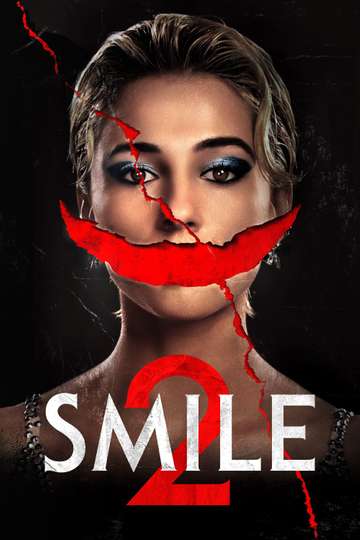
What is the plot of ‘Smile 2’?
About to embark on a new world tour, global pop sensation Skye Riley (Naomi Scott) begins experiencing increasingly terrifying and inexplicable events. Overwhelmed by the escalating horrors and the pressures of fame, Skye is forced to face her dark past to regain control of her life before it spirals out of control.
Who is in the cast of ‘Smile 2’?
- Naomi Scott as Skye Riley
- Rosemarie DeWitt as Elizabeth Riley
- Lukas Gage as Lewis Fregoli
- Miles Gutierrez-Riley as Joshua
- Peter Jacobson as Morris
- Ray Nicholson as Paul Hudson
- Dylan Gelula as Gemma
- Raúl Castillo as Darius Bravo
- Kyle Gallner as Joel
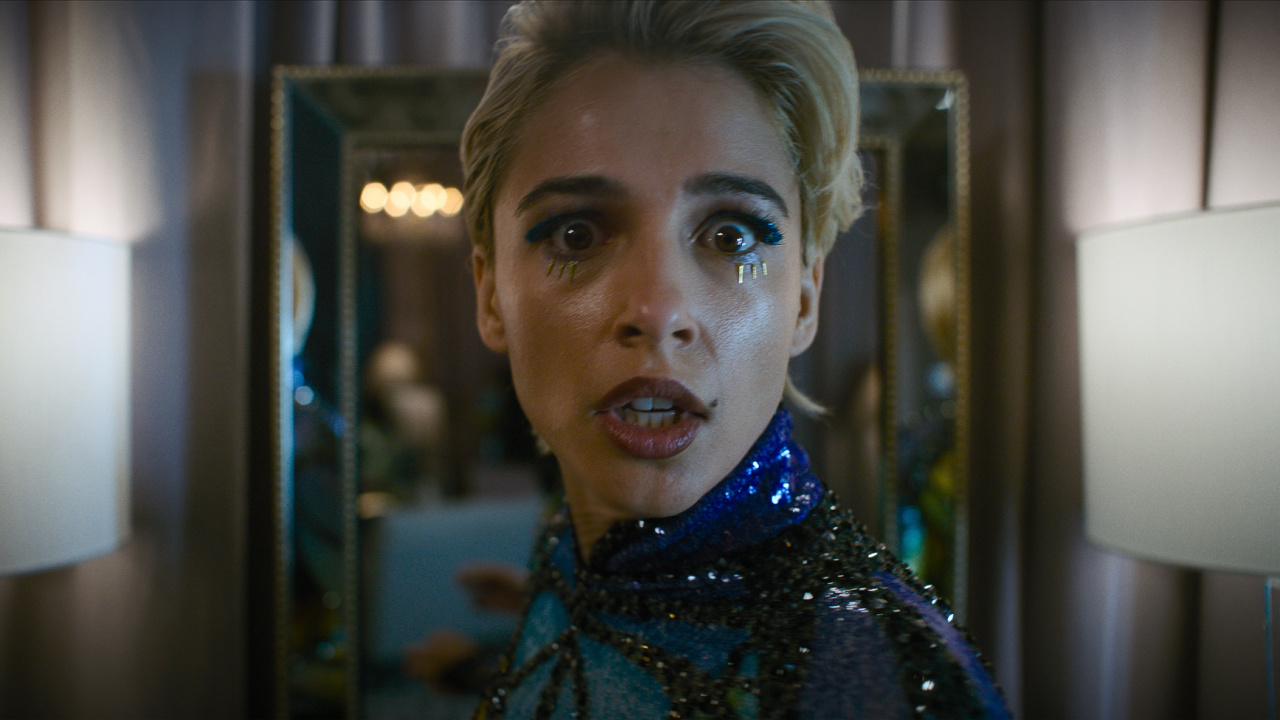
Naomi Scott stars in Paramount Pictures Presents a Temple Hill Production of a Parker Finn Film 'Smile 2'.
Other Naomi Scott Movies and TV Shows:
- 'Lewis' (2007 - 2015)
- 'Terra Nova' (2011)
- 'By Any Means' (2013)
- 'The 33' (2015)
- 'Power Rangers' (2017)
- 'Aladdin' (2019)
- 'Charlie's Angels' (2019)
- 'Anatomy of a Scandal' (2022)
- 'Modern Love Tokyo' (2022)
Buy Naomi Scott Movies on Amazon












